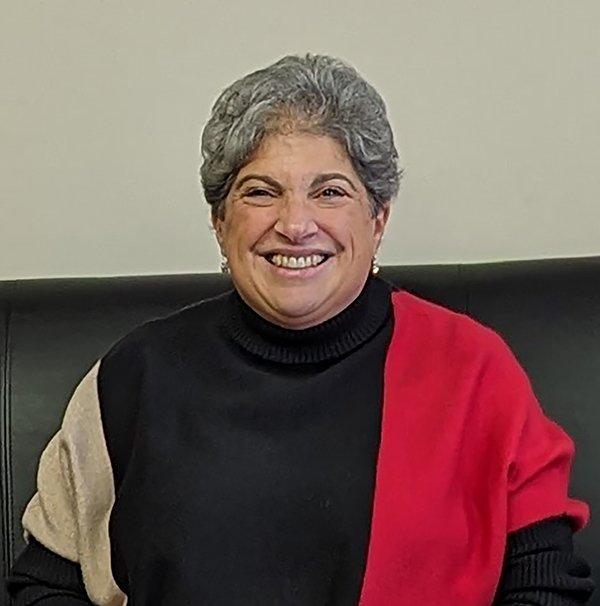On the heels of the Weekly’s conversation with Dr. Nyree Derderian, chair of the Armenian Relief Society (ARS) Central Executive Board, the Armenians of Artsakh, already enduring the disastrous outcome of Azerbaijan’s months-long blockade and subsequent attacks, suffered more deaths and injuries from a fuel blast. True to its more than 100-year history of devotion and service to the Armenian people and homeland, the ARS immediately extended condolences and expressed readiness to help.
The ARS is scheduled to hold its quadrennial international convention in Yerevan in a few weeks. While there was initial concern regarding the safety of the delegates and guests, in light of Azerbaijan’s attacks on Artsakh and the unrest in Yerevan, the board decided to move forward with the convention. In the four years since this board was elected, the ARS has sprung into action for Armenians in need five times: Lebanon for economic strife, globally for the pandemic, Lebanon for food shortages, Lebanon for relief from the explosion, and Artsakh beginning with the 2020 war, in that order.
“If we as the Armenian Relief Society are in solidarity with the people and are on the ground, our convention can not only serve to assess our activities for the last four years, it can turn into what we do best, which is reaching out and providing humanitarian assistance,” Derderian said.
The organization has been planning and preparing to meet the needs of the Armenians from Artsakh prior to their arrival in Armenia by the thousands. The ARS will conduct an assessment of the primary and secondary needs of those arriving in Armenia. In contrast to the 2020 war, explained Derderian, the Armenians from Artsakh are being “forcefully deported” with no concrete plan for their future. “The approach needs to be different from helping someone who has been stricken by war with the hope of returning,” Derderian said, explaining that there must be respect and understanding of what the people are bringing with them and what they have left behind.
During the 2020 war, the ARS promised to provide assistance to 1,000 displaced families from Artsakh, amounting to $1 million in aid, through its “Stand with an Artsakh Family” program. Donors pledged $250 per month for four months. According to Derderian, the ARS was ultimately able to assist more than 1,000 families through the generosity of its members and supporters. In fact, she said that over the last three years, the ARS has spent approximately $6 million on projects in Artsakh with humanitarian aid, as well as providing assistance through shipments from afar under the ARS name.
Derderian noted that for the first time in three wars, the International Committee of the Red Cross (ICRC) is physically registering every Armenian from Artsakh arriving in Armenia through Kornidzor. This will provide critical information for the ARS, which is in contact with the ICRC, to determine the assistance needed, both immediately and in the long term.
Derderian was quick to note the natural and immediate instincts of ARS members, sharing a story from besieged and blockaded Artsakh at the beginning of the Azeri attacks on September 19. ARS members sheltering in their office in Stepanakert found the means to get some flour. They knew that the ARS Soseh Kindergarten in Stepanakert was being used as a shelter – one of the purposes for which it was built. They put their lives at risk to acquire the flour and make bread to provide nutrition to those in the shelter.
“We have maintained constant contact with our members in Artsakh from the start of the blockade as much as possible without putting them at risk,” Derderian said. Conversations with ARS members in Artsakh always end with reassurances and motivation for their fellow ARS members globally. “They were asking us to continue to struggle for them. The fact that they have not lost hope when all seems lost means that we don’t have the right to lose hope,” Derderian said. “We have to do everything in our means possible, and impossible, to make sure that they come out of this situation feeling like someone cares.”
 With that mission firmly in mind, the ARS immediately issued a call to help the Armenians of Artsakh forcibly displaced from their homeland.
With that mission firmly in mind, the ARS immediately issued a call to help the Armenians of Artsakh forcibly displaced from their homeland.
There are also thousands of students from Artsakh who are currently studying in Armenia who feel abandoned and have lost contact with their families. The ARS is initiating a plan to provide aid to those students.
While the ARS is conducting its needs assessment, Derderian noted that the organization always provides immediate sustenance. “We are A to Z,” she said, stating that the ARS will find those displaced from their homes in Artsakh a place to live, provide food and medical attention. “We are a volunteer force to be reckoned with,” Derderian stated. She remarked on the adept ability of ARS members to raise funds and spread the word, often better than organizations with more resources than the ARS.
In the last few days, the Central Executive Board held an online meeting with all of the ARS entities’ executive boards to discuss the current situation in Artsakh and Armenia and what the role of the ARS globally is to support the people during this critical time. The ARS in Armenia is “organized on the ground and putting steps forward to have the readiness to reach out to the Artsakhtsis coming into Armenia,” Derderdian said.
“The ARS has been doing this for 113 years. We have a mechanism that works and are always learning from that mechanism,” Derderian said. “If you want to donate to the people of Artsakh, donate to the ARS – an organization you can trust to bring programs to fruition.”



Be the first to comment